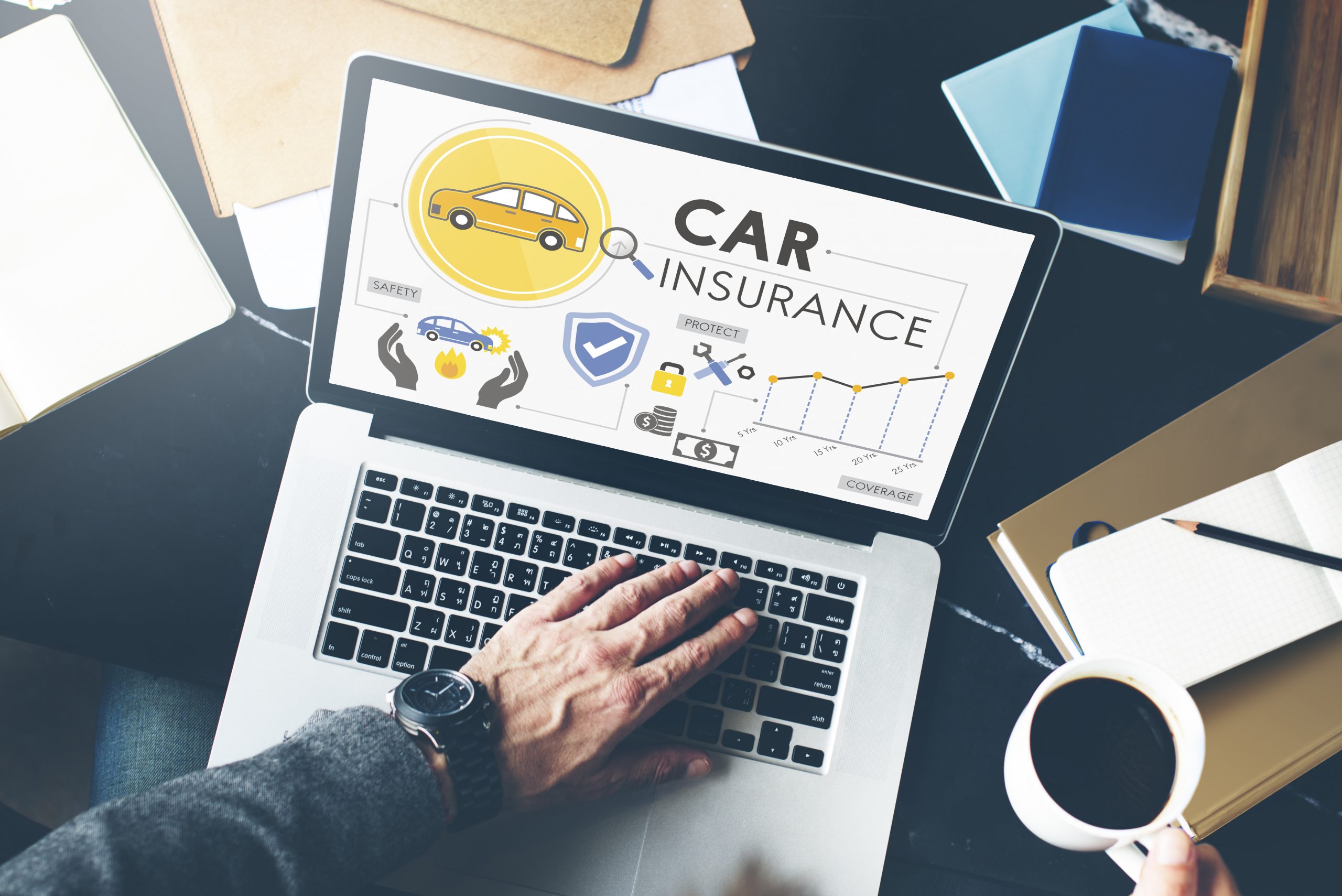Auto Insurance 101: What You Need to Know About Car Insurance

Car insurance is one of those things that all drivers need. Whether you’ve just gotten your driver’s license and you’re in the market for your first car or you’ve been driving for decades, auto insurance is there to protect not only you, but other drivers on the road around you. As such, selecting the right policy — one that not only fits your budget but that also provides the right level of coverage — is critical.
With this in mind, we wanted to answer some of the most common questions that people tend to ask about car insurance — What is car insurance? How does it work? What does it cover? How much do you need? — so that you will be better prepared to make the right decision about your policy.
What Is Auto Insurance?
Auto insurance or car insurance is a type of insurance that vehicle owners purchase in order to protect themselves against the costs that come with getting into an accident involving the vehicle. This may include damage to your own vehicle, damage to someone else’s vehicle or property, legal expenses, and medical bills for yourself and others, depending on the specifics of your policy.
It’s important to note that personal auto insurance, which is what most people think about when they think about car insurance, only covers you if you are using your vehicle for personal use. This includes, but is not limited to, running errands, taking a trip, driving to and from work, etc. It may not cover you if you use your vehicle for commercial reasons, such as acting as a delivery driver or ride-share provider. If you use or plan to use your car for business, you may need to purchase a commercial policy.
How Does Auto Insurance Work?
Auto insurance works roughly the same as other types of insurance, such as homeowners insurance and health insurance.
First, you purchase a policy, which outlines the types and amount of coverage that you want. Typically, car insurance policies must be renewed every six months, though some companies may offer longer or shorter policies.
After you’ve purchased your policy, you will be responsible for paying your premiums. Most insurance companies will give you the option of paying up-front for all six months (usually for a slight discount) or on a monthly basis.
If you are involved in an accident, you’ll need to submit a claim to your insurance provider and pay any deductible that you are required to pay. Once you have paid the deductible, the insurance company will pay any remaining expense. Importantly, car insurance deductibles typically reset with every claim, not on an annual basis.
What Factors Influence Auto Insurance Rates?
How high your car insurance premiums are will depend on a number of factors and considerations. This may include:
- Your car: How old is your car? How much is it worth? Does it have any features, such as built-in security, anti-theft mechanisms, or anti-lock brakes, that reduce the likelihood that you will make a claim? All of these will impact your rates.
- Your driving record: How long have you been driving? Have you been in an accident before? Do you have a clean record? Have you ever had a DUI? Drivers with a long history free of accidents will typically pay less than new drivers or those who have been in multiple accidents.
- Your commute: Do you have a long or short commute? Do you regularly travel long distances or do you usually drive locally? The more you drive, the greater the opportunity you may be involved in an accident, and the higher your rates may be.
- Where you live: If you live in an area where accidents, vandalism, or thefts are common, this can raise your rates.
- The type and amount of coverage: The specific types and amount of coverage you purchase (collision, liability, etc.) will all play a part in determining your rates.
- Your deductible: Generally speaking, the lower your deductibles, the higher your premiums will be.
- How long you’ve been with the insurer: Many insurers will offer policyholders loyalty discounts after they have been insured for varying lengths of time, in order to retain them. Similarly, if you have other policies with the insurer (such as homeowners insurance) you may qualify for a bundle or additional discount.
What Does Auto Insurance Cover?
When you purchase car insurance, you are essentially purchasing coverage for yourself and anyone else that you have listed on your policy (such as a spouse, children, or other family members). Your policy provides coverage whether you are driving your vehicle or someone else’s vehicle, and also provides coverage to anyone who is not on your policy but drives your vehicle with your consent.
That being said, there are many different types of policies, and each offers different types of coverage. Below is a short overview of the most common types of coverage offered by car insurance companies:
1. Auto Liability Coverage
Auto liability coverage is specifically designed to cover you if you are found to be at fault in an accident. It typically covers damage to objects and other vehicles beside your own, as well as injuries to other drivers and any passengers they may have in their car. This coverage also covers you if you are sued due to your role in an accident. This is the type of insurance that most states require drivers to carry.
2. Collision Coverage
Collision coverage specifically covers damage that your vehicle receives during a collision accident. This may involve colliding with another car, as well as as a tree, guardrail, or other structure.
3. Comprehensive Coverage
Comprehensive coverage is meant to provide you with protection against events that are beyond your control. Examples include, but aren’t limited to, damage from falling trees or branches, vandalism, theft, windshield damage from rocks or debris, etc.
Broken glass (i.e., windows and windshields) are some of the most common claims made under this type of coverage. With this in mind, it’s important to understand whether or not your policy includes a glass deductible that you might need to pay out of pocket before coverage kicks in.
4. Uninsured or Underinsured Motorist Coverage
If you are involved in an accident with an uninsured or underinsured motorist, this coverage is designed to protect you from out-of-pocket expenses. Uninsured motorist bodily injury (UIM) coverage covers medical bills you or your passengers may receive, while uninsured motorist property damage (UMPD) coverage covers damage to your vehicle. Some states require you to carry this type of policy as well as liability coverage.
5. Medical Payments or Personal Injury Protection (PIP)
Both medical payments and personal injury protection (PIP) coverage are designed to cover medical bills if you or your passengers are injured during an accident. If you carry one of these policies, you will be covered no matter who is at fault for the accident.
6. Other Types of Coverage
In addition to the policies discussed above, some other common types of coverage include:
- Glass damage coverage
- Gap coverage (loan/lease payoff)
- Roadside assistance
- Rental car reimbursement
- Rideshare coverage
- Commercial coverage
- And more
Is Car Insurance Required?
All but two states require drivers to carry a minimum amount of auto liability coverage by law. This amount varies from state to state, but typically covers bodily injury and property damage caused by your vehicle.
New Hampshire and Virginia do not require car insurance by law, but have other requirements for drivers who forego insurance. Additionally, some states may allow drivers to forego car insurance if they can demonstrate the financial ability to pay for damage, typically through the purchase of a bond or cash deposit.
Additionally, if you are financing your vehicle with an auto loan, your lender may require you to carry a certain level of insurance, regardless of the state’s laws.
Because the costs associated with a car accident can rapidly mount, even in states where car insurance isn’t required, it typically isn’t recommended that you forego it. However safe a driver you may be, one thing you can’t control is the other drivers on the road. Car insurance is there to protect you and your family from the unknown.
Choosing the Right Policy
At the end of the day, which auto insurance policy is right for you will depend on a number of different factors. How much coverage do you need? How much do you want? Are you comfortable paying higher monthly premiums in exchange for a lower deductible, or would you rather pay lower monthly premiums and deal with a higher deductible in the event you are involved in an accident? Do you need gap coverage or commercial coverage?
Only you can answer these questions. That being said, once you know the type and amount of coverage you need, finding the best deal doesn’t need to be difficult. There are a number of online tools specifically designed to help you choose the best possible coverage for your needs.
At Matic, we want to make buying car insurance as fast, easy, and affordable as possible. In less than a minute, after answering a few basic questions, you can get your own personalized quote and know that you’re getting the best possible deal for your money.



